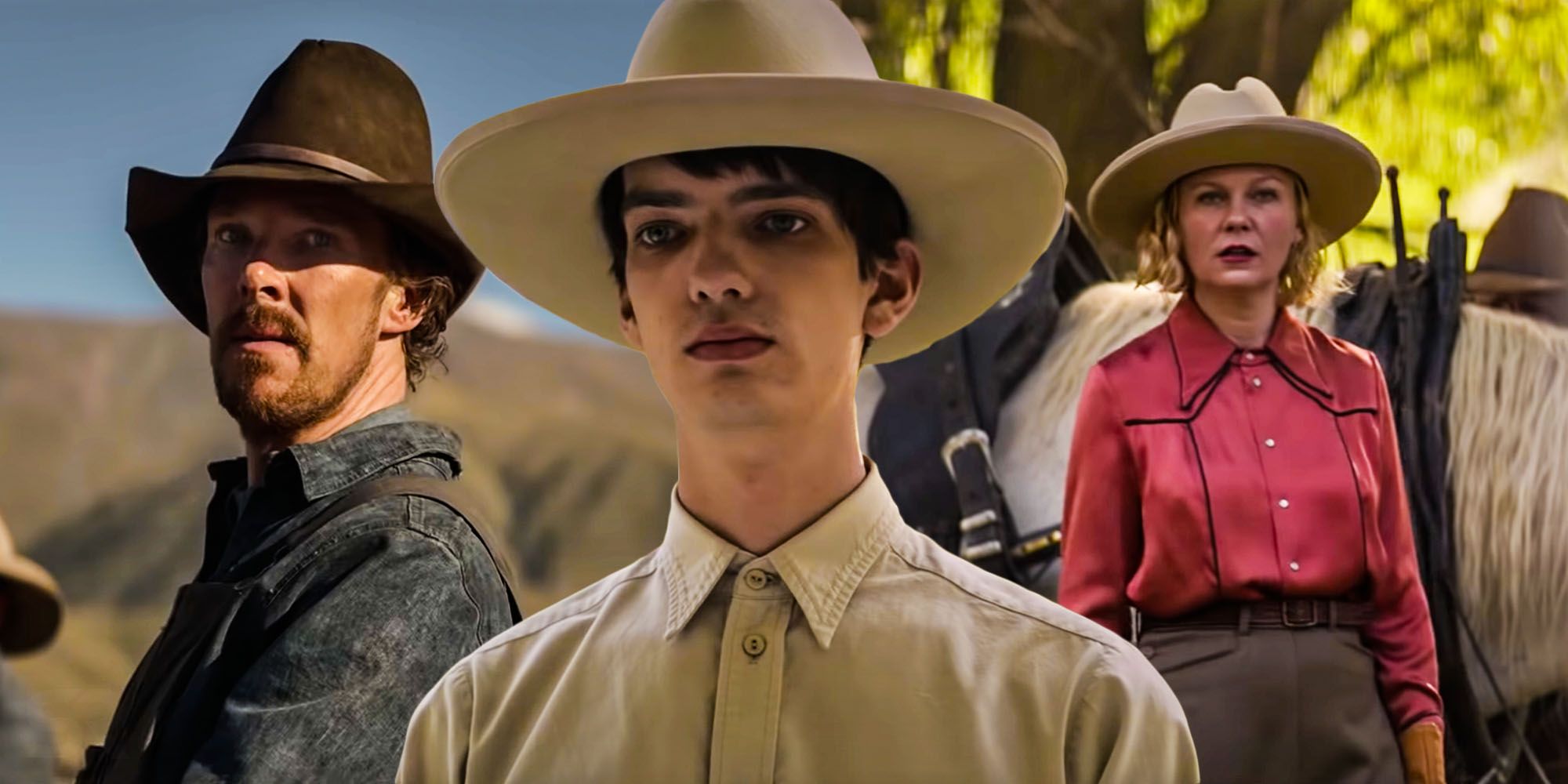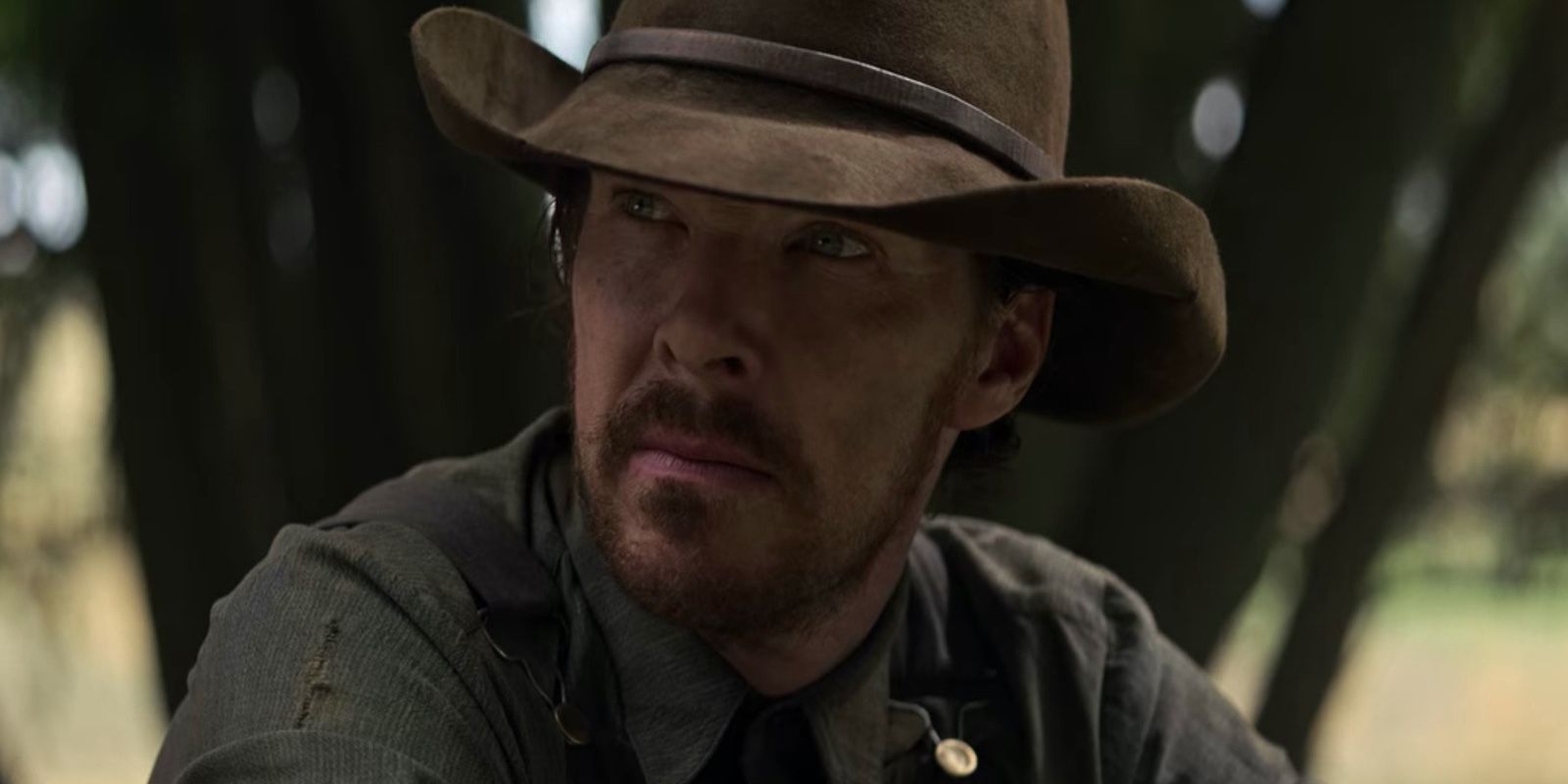Summary
- The Power of the Dog title refers to a Bible verse representing the psychological power of Phil over others.
- Phil's power lies in his ability to demean and emotionally abuse others, making them question their self-worth.
- The ending of The Power of the Dog elevates the story, highlighting Peter's complex decision to protect others, including Phil.
The Power of the Dog's title meaning becomes clear in the final moments of the film, in which Peter is seen reading a Bible verse. Written and directed by Jane Campion, The Power of the Dog was a huge critical success when released in 2021 and went on to lead the 94th Academy Awards with 12 nominations, taking home only one award for Best Director. The Power of the Dog stars Benedict Cumberbatch as Phil Burbank, a rancher living in Montana in 1925. He spends much of the movie tormenting teenager Peter, the son of his brother's girlfriend, Rose.
Phil dies at the end of The Power of the Dog, and Peter sits on his bed reading the Bible. There in the text lies the Bible verse from which The Power of the Dog's title is taken, found in the Book of Psalms, chapter 22: “Deliver my soul from the sword; my darling from the power of the dog.” While the implication is that Phil is the dog and everyone is saved from his power by his death, there are more correlations to be made from the context of the verse that lend more insight into The Power of the Dog's title and Bible verse use.
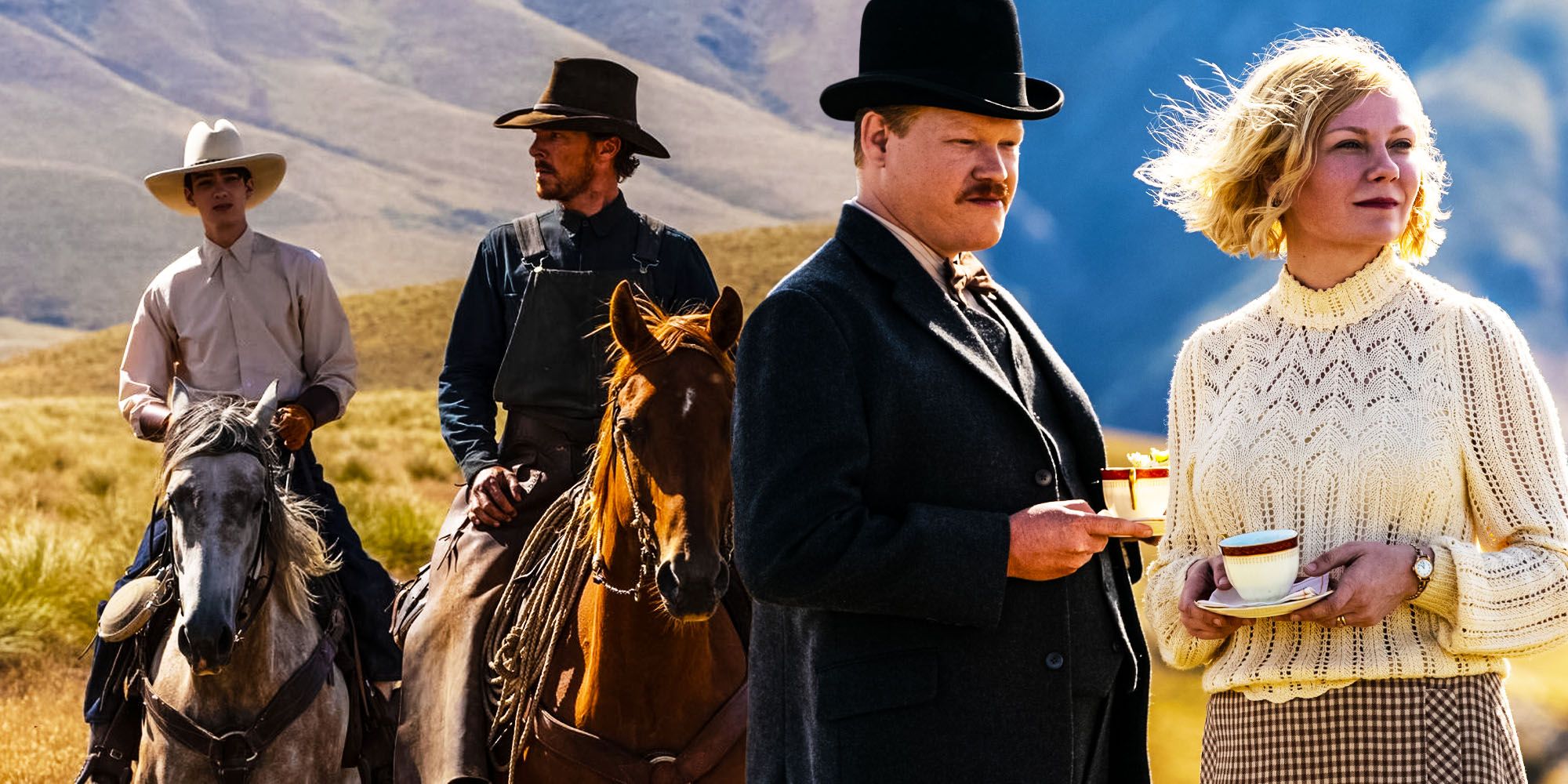
The Power of the Dog Wasted One Of Its Biggest Stars
The Power of the Dog wastes one of Hollywood’s brightest new stars in the role of Lola, who has minimal lines and no purpose in Netflix’s new Western.What The "Power Of The Dog" Title Really Means
Phil's Power Is More Psychological Than Physical
While the verse seen in the film may seem straightforward, the “power” referenced in Psalms 22:20 remains largely mysterious. It is understood that the dog from the text is Benedict Cumberbatch’s character in The Power of the Dog, but his power remains elusive and subject to viewer interpretation. George walks on eggshells around him, unable to reveal his true feelings or thoughts for fear of ridicule; Rose falters, descending into a bleak alcoholism, and gentle, artistic Peter becomes a murderer by the film’s conclusion. The “dog” has power, but never executes it.
The "power" in The Power of the Dog is one of psychological force, rather than physical.
In The Power of the Dog, Phil is quiet, delivering stoic lines a few at a time in the true style of the classic Western. Phil is non-confrontational, hiding in rooms with his banjo and letting his absence speak more than his presence, yet he wields psychological strength over the other characters in the film that is simultaneously gentle and vicious. This is part of how The Power of the Dog subverts Western masculinity tropes. The "power" in The Power of the Dog is one of psychological force, rather than physical.
Phil’s power comes from demeaning people, an idea that is reinforced by the previous Bible verses from Psalms chapter 22: 6-7:
“But I am a worm, and no man; a reproach of men, and despised of the people. All they that see me laugh me to scorn: they shoot out the lip, they shake the head…”
Phil burns Peter’s paper flowers and whistles from a window while hiding in his room to let Rose know he is watching her. He plays Rose’s piano piece perfectly on his banjo without ever saying a word and calls his brother George, “fatso,” emotionally abusing others until their view of themselves is their greatest enemy. It is Phil’s ability to prey on others’ inadequacies and insecurities, thus making them question their value and feel like “worms.” That is the dog’s “power” as alluded to in The Power of the Dog's title.

Every Benedict Cumberbatch Movie, Ranked From Worst To Best
From Doctor Strange to the Dragon Smaug to his lone Oscar nomination, here are Benedict Cumberbatch's films ranked from worst to best.What Power Of The Dog's Bible Verse Means For Peter
Peter Might Be A Christ-Like Figure in The Story
Interestingly, the verse behind The Power of the Dog mirrors Jesus' prayer from his crucifixion. Psalms 22 begins with the verse, “My God, my God, why hast thou forsaken me?” — Jesus’ famous words on the cross. In verse 16 he says, “For dogs have compassed me: the assembly of the wicked have inclosed me: they pierced my hands and my feet.” This leads to the idea that Peter, who is somewhat based on the man behind The Power of the Dog's true story (Thomas Savage), could be being portrayed as a Christ-like figure.
Like the heckling from verse 7 and verse 16’s reference to being bullied by “dogs,” the chapter further correlates Phil’s treatment of Peter in The Power of the Dog in verses 12-13: “Many bulls have compassed me: strong bulls of Bashan have beset me round. They gaped upon me with their mouths, as a ravening and a roaring lion.”
The Christ-like projection of the murderous Peter seems a bit ambitious
This verse draws ties to the scene in which the cowboys circle around Peter and taunt him at Phil’s behest. Yet, while there may be some similarities between Peter in The Power of the Dog and Jesus, like the idea that both were outcasts, the Christ-like projection of the murderous Peter seems a bit ambitious.
Who Is The "Darling" In Power Of The Dog's Ending?
Is It Rose, Peter, Or Maybe Even Phil?
If Phil is the “dog” from the Bible’s verse, who is the verse’s “darling?” Peter’s mother, Rose, one of the best roles of Kirsten Dunst’s movie career, is the most obvious answer, as Peter is the one in possession of the Bible when the verse is shown, and he says at the beginning of The Power of the Dog that he seeks to save her. This idea is fortified by the end scene in which Peter stares down upon Rose and George from his room after reading the verse and watches as his mother and George embrace lovingly.
Alternatively, Peter himself may be the “darling.” Although Peter is the one holding the Bible in the scene at the end of the film, it does not necessarily mean that he is the speaker of the verse in the context of the film. Referring to the idea that he is projected as a Christ-like figure, it could be concluded that Peter is the “darling,” as Christ was the darling of God and that by The Power of the Dog's ending, Peter is free from Phil’s power. However, Christ was freed by sacrifice, not by murder.
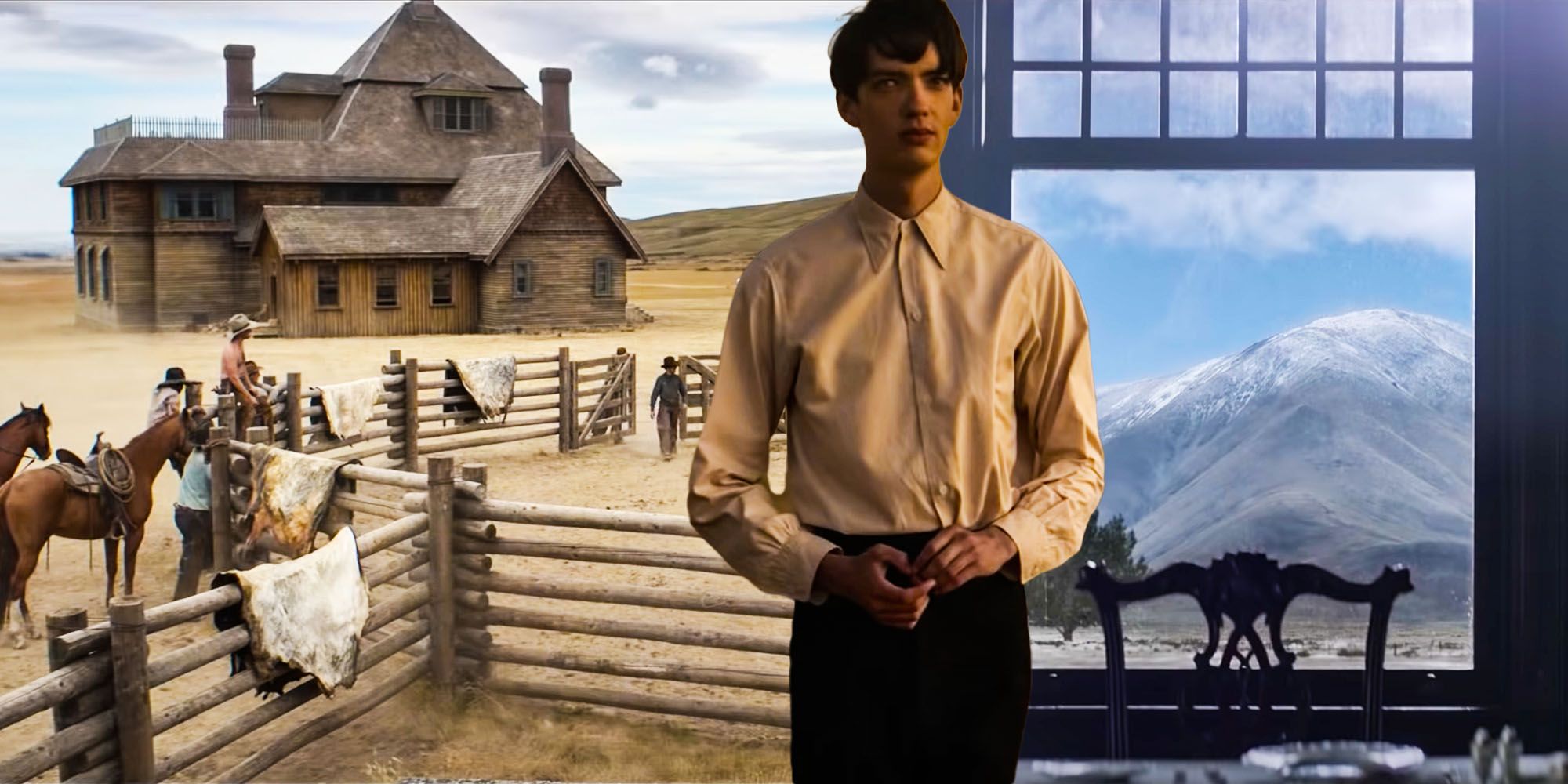
Where Was Power Of The Dog Shot? Filming Locations Explained
Jane Campion's Netflix Western film The Power of the Dog is set amidst the scenic hills and mountains of rural Montana, but it wasn't filmed there.The most interesting option may be that the “darling” referred to is actually Phil. In an earlier scene, Phil seems struck by the gentle, caring way that Peter snaps the neck of an injured rabbit they find together. This scene may have been a foreshadowing of Phil’s murder, with Peter feeling as though he was saving Phil from a life of longing and pain.
Why Jane Campion’s 2021 Movie Is Called The Power of the Dog
The Movie Is The Story Of The Darling, The Dog, & The Speaker
The most straightforward explanation for the mystery behind The Power of the Dog's title is that the Bible verse in question describes the film's three main characters: Phil, Rose, and Peter, who are the dog, the darling, and the speaker, respectively. At the same time, any of the three could be the darling, and the dog could even be BH, a.k.a. Bronco Henry, Phil's mentor and lover.
Ultimately, what makes The Power of the Dog compelling is how it avoids overstating its point, relying instead on subtlety to offer a powerful critique and reinvention of the Western genre. From this perspective, "the power of the dog" might not be a character at all, but rather a set of harmful tropes, expectations, and perspectives from a bygone era of the American West.
The Power of the Dog's title and the corresponding Bible verse work well on a number of levels.
It's no secret that Campion's uniquely unsettling and meditative film is intended to subvert the cinematic conventions that usually go along with this type of content, which is why people like Sam Elliot are wrong about The Power of the Dog not being a good Western. On the contrary, it delivers itself and audiences from the power of outdated, toxically masculine movie tropes, which is the most dangerous dog of all. The Power of the Dog's title and the corresponding Bible verse work well on a number of levels.
The Power Of The Dog Ending Helped It Earn Accolades
Peter's Final Actions Elevated The Story To Another Level
The Power of the Dog ending left viewers with some unanswered questions, but they were all painted out throughout the story for those who paid close attention. The entire Bible verse that Peter read at the end tied most of the loose ends up if people were willing to admit that Phil was the "dog" and that Peter put him down to save everyone in the story - Phil included. Peter promised to protect his mother, he seemed to want to protect Phil from his own pain, and when he held the cowhide with gloves, it was clear that he had killed Phil with the diseased cowhide.
This allows the movie to show Peter making a decision that seemed out of his realm of thinking in the end, and as a result, the film ended up elevated to awards contender status. Both Jane Campion and Benedict Cumberbatch said they wanted to create some "conversations" with how the story ended, and they used some great moments in the script to lead to the ending - one that seemed shocking but made complete sense when looking at the rest of the movie on a deeper level - specifically Peter seeing Phil struggling with his sexuality (via Digital Spy).
There's also a massive intolerance in the world at large towards homosexuality, still, towards an acceptance of the other, of any kind of difference, and no more so than in this prism of conformity, in the sense of what is expected of a man in the Western archetype mold of masculinity .
Taking the story to this deeper level, The Power of the Dog ended up receiving high critical praise. While it didn't win a screenplay award at the Oscars, and only walked home with the Best Director Award, it did pick up several screenplay honors in other places. The movie won Best Screenplay Awards from the Alliance of Women Film Journalists, The Critics' Choice Awards, the Dorian Awards, and several critics groups around the United States. In the end, The Power of the Dog told a powerful story, and it was all laid out in a brilliantly written script.
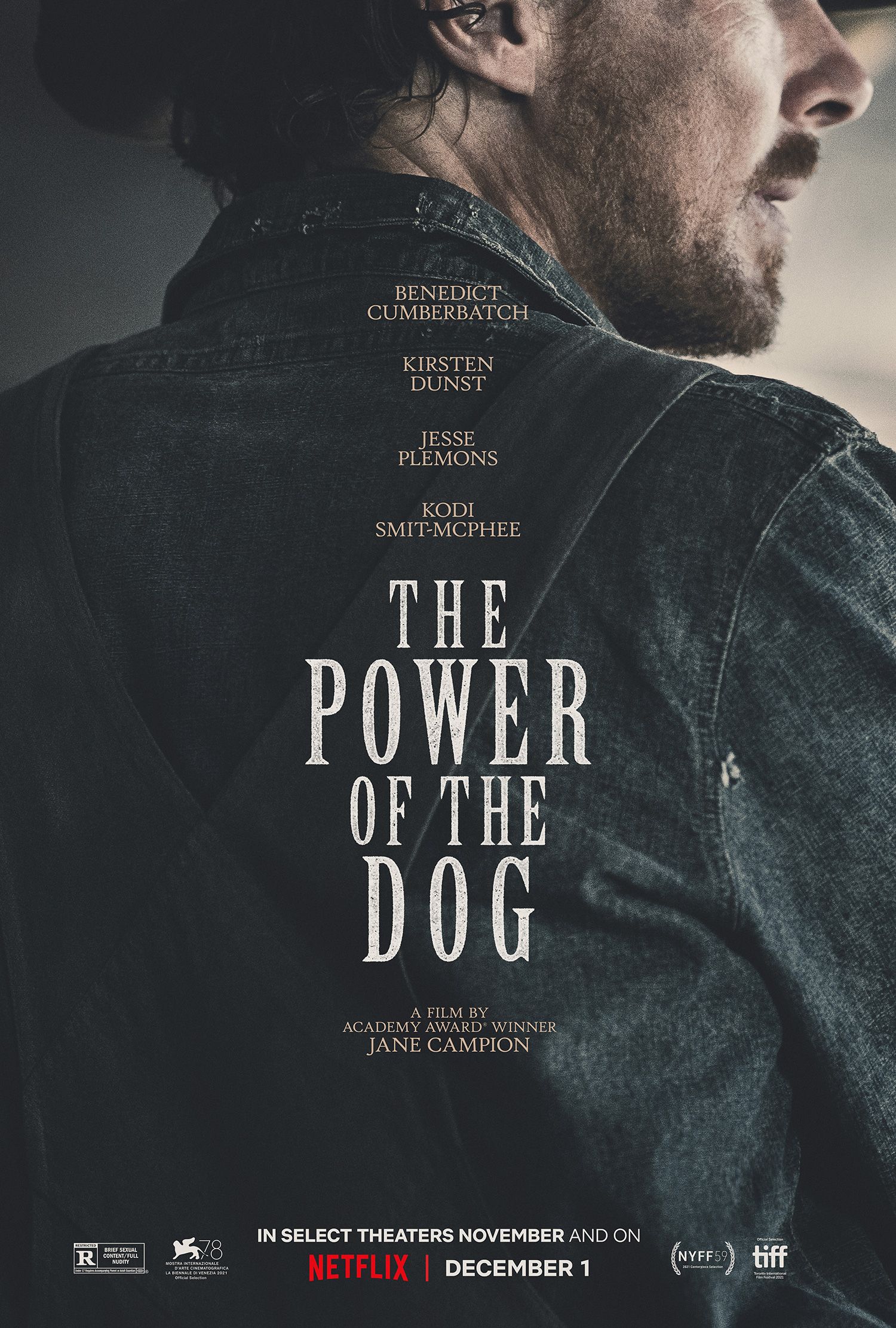
The Power of the Dog
The Power of the Dog is a Western drama film adapted from the novel by Thomas Savage. When a widow and her son move into a ranch, she captures the attention of a kindly gentleman named George, much to the chagrin of his brother, Phil. After they marry, Phil’s temper begins to flare, and he begins to torment the two – but his behavior may spell disaster when his new nephew’s darker side comes to light.
- Director
- Jane Campion
- Release Date
- November 17, 2021
- Studio(s)
- Netflix
- Distributor(s)
- Netflix
- Writers
- Jane Campion
- Cast
- Frances Conroy , Jesse Plemons , Kirsten Dunst , Thomasin McKenzie , Peter Carroll , Adam Beach , Kodi Smit-McPhee , Keith Carradine , Benedict Cumberbatch
- Runtime
- 126 minutes



